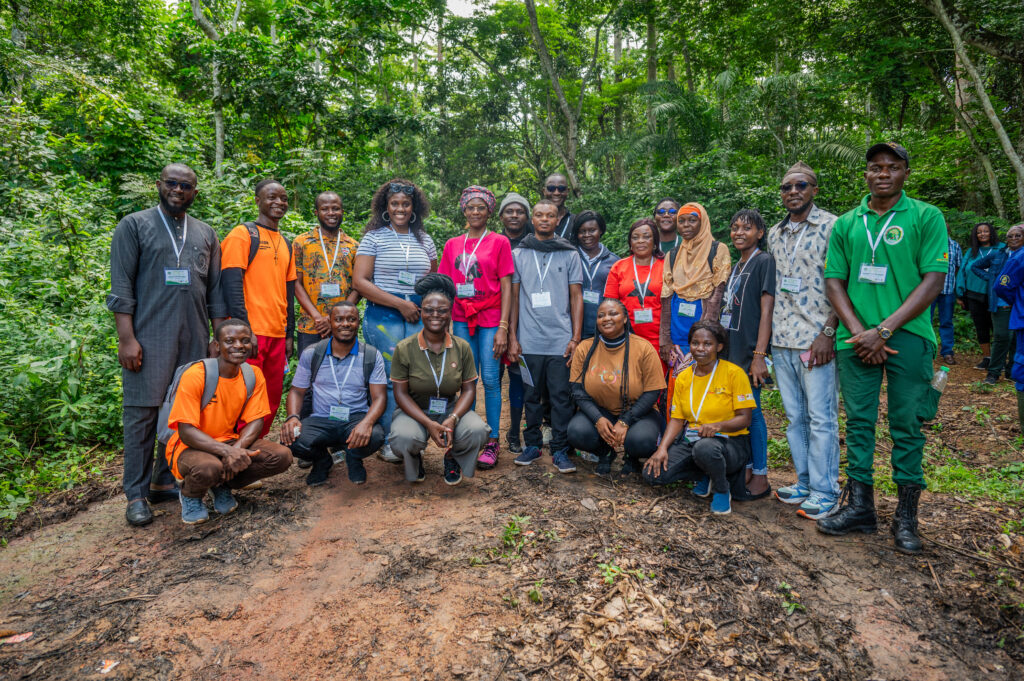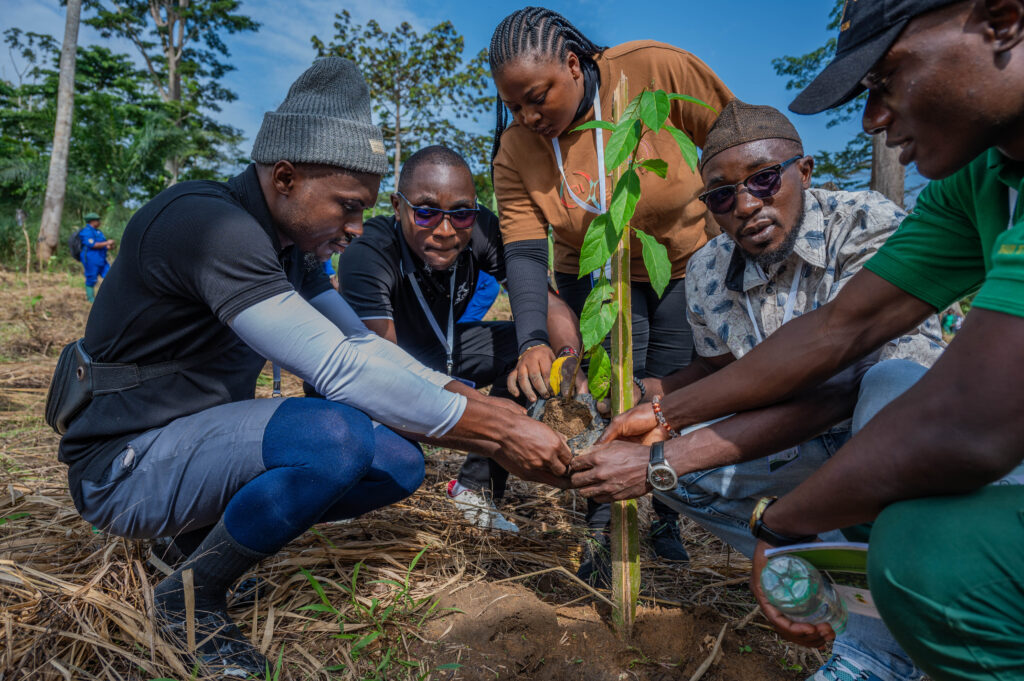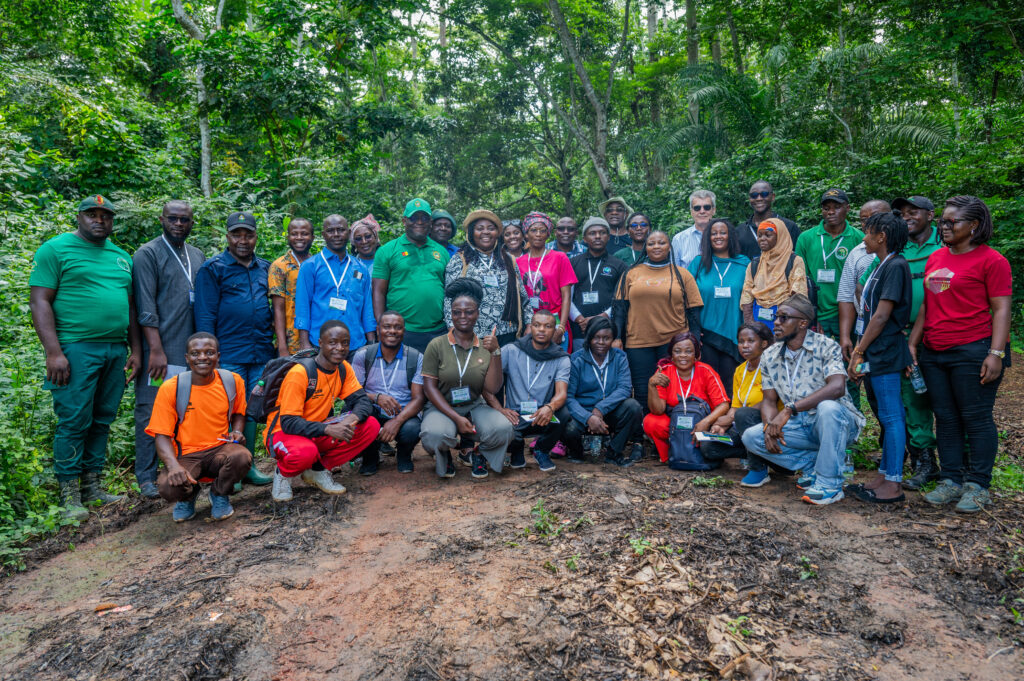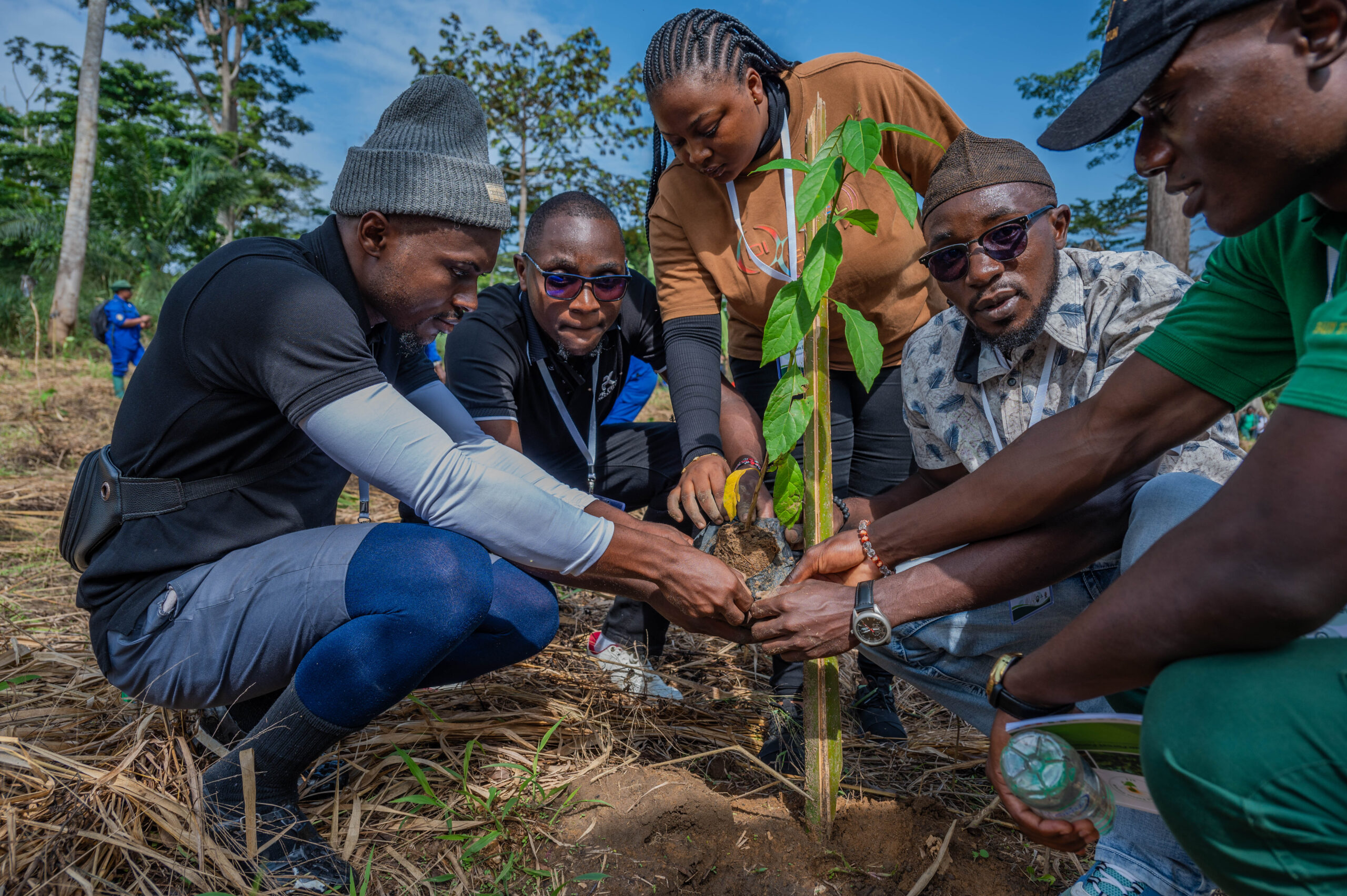By Etienne Mainimo Mengnjo
Young environmental leaders across Cameroon have united in a powerful declaration, calling for increased youth participation in forest governance as part of their commitment to climate action and the green economy transition.

This declaration emerged from the ‘AfricanYouth4Forests’ (AY4F) National Youth Workshop, held from June 11 to 13 at the National Forestry School of Cameroon in Mbalmayo.
The workshop, themed “From Science to Youth Action for Sustainable Forestry,” was organized by the African Forest Forum (AFF) in collaboration with the Kenya Forestry Research Institute (KEFRI) and the Swedish University of Agricultural Sciences (SLU), with support from Formas, the Swedish Research Council for Sustainable Development.
During the workshop, participants identified critical threats to Cameroon’s forests, including illegal logging, agricultural degradation, weak law enforcement, urban expansion, and the limited involvement of youth in environmental decision-making.
They also highlighted barriers such as restricted access to financing, digital tools, and technical training, which hinder effective youth-led initiatives in sustainable forestry.

Despite these challenges, youth showcased a strong commitment to innovation, entrepreneurship, and community-based action. Proposed solutions included precision agroforestry, tree nurseries, ecotourism, digital conservation tools, sustainable forest management, and innovative financing methods like blockchain.
“Nothing for us without us. Young people are not waiting to be invited to the table—we are building our own,” the declaration states. “We don’t have to choose between earning a living and saving the planet. We can—and must—do both.”
The youth called for a shift in mindset and behavior, emphasizing their readiness to act: “Give youth the tools and trust—we will build a greener tomorrow.”
During the workshop, participants received training in sustainable forest management, green enterprise development, and advocacy, focusing on translating knowledge into action. However, they expressed concerns about their underrepresentation in forest governance structures, despite being digitally savvy and deeply connected to their communities.
To address this, participants urged the Cameroonian government to create an enabling environment for youth-led climate actions, simplify administrative procedures for youth engagement, improve access to internships, mainstream environmental education, and establish community-managed, youth-led forest reserves. They also called for laws that support youth-led climate initiatives.

The private sector, NGOs, and international partners were urged to provide mentorship, financing, and digital platforms to enhance youth-led forest businesses and advocacy efforts.
“This workshop is a turning point,” said Mitin Sandrine Yaah, environmental engineer and the CEO’s Youth Advisor at the Global Centre on Adaptation.
“We have gained not just knowledge, but purpose,” added Anya Dabite Abeh, a young conservation biologist.
Dr. Chemuku Wekesa from KEFRI stressed the need for young researchers’ ambitions to match the forests they aim to protect. AFF Consultant Dr. Peter Mbile encouraged youth to explore opportunities in carbon markets and emerging technologies, urging a focus on possibilities rather than past failures.
Dr. Moussa Massaoudou, representing the AFF Executive Secretary Prof. Labode Popoola, highlighted the importance of digital literacy among African youth.
“Training in GIS, drones, and AI can save time and unlock resources,” he stated. “With over 60% of Africa’s population under 30, meaningful youth inclusion in forest governance is essential for sustainability.”
The AY4F initiative empowers Africans aged 18–35 to lead environmental transformation by bridging scientific knowledge and indigenous wisdom. As the world prepares for COP30, the Mbalmayo workshop exemplifies the transformative potential of youth in shaping Africa’s climate and forest future, armed with science, solidarity, and unwavering purpose.

